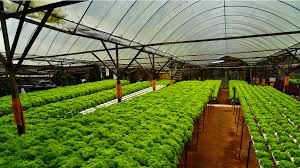Greenhouses have become an essential part of modern agriculture, providing farmers with the ability to control growing conditions and protect crops from unpredictable weather. Unlike open-field farming, greenhouses create a stable environment where temperature, humidity, and light can be managed to optimize plant growth. This level of control allows for consistent crop quality, better yields, and fresher produce. For farmers, investing in a greenhouse means reducing risks and ensuring a reliable supply of high-quality crops throughout the year.
How do greenhouses maintain consistent crop quality?
One of the key benefits of a greenhouse is the ability to maintain consistent conditions that promote healthy plant growth. Temperature fluctuations, pests, and diseases often affect crops grown outdoors, leading to uneven quality and lower market value. In a greenhouse, growers can regulate climate settings to meet the specific needs of each crop. This consistency ensures that fruits, vegetables, and other plants grow uniformly, enhancing both taste and appearance. Consumers and retailers alike value this reliability, making greenhouse-grown produce more desirable in the market.
What role does technology play in greenhouse farming?
Modern greenhouses rely heavily on technology to achieve optimal crop performance. Automated systems can monitor soil moisture, temperature, and nutrient levels, providing precise adjustments to support plant health. Lighting systems simulate natural sunlight, while ventilation and humidity controls prevent overheating or excess moisture. These technologies allow farmers to respond quickly to changing conditions, minimizing crop stress and maximizing growth potential. By combining technology with expert cultivation practices, greenhouses deliver superior crop quality that is difficult to achieve with traditional farming methods.
How does a greenhouse improve freshness?
Freshness is one of the most important factors for consumers when choosing produce. Greenhouses help preserve freshness by allowing crops to grow in a controlled environment with reduced exposure to pests, harsh weather, and transportation delays. Produce can be harvested at peak ripeness and delivered quickly, ensuring that it retains flavor, texture, and nutritional value. This results in vegetables and fruits that not only look appealing but also taste better, offering a superior experience for buyers and end-users.
Why is sustainability a benefit of greenhouse farming?
Greenhouses can support more sustainable farming practices by using resources efficiently and reducing waste. Controlled irrigation systems minimize water usage, while precise nutrient delivery reduces fertilizer runoff. Additionally, greenhouse farming often requires fewer pesticides due to the protected environment, which benefits both the ecosystem and human health. Sustainable practices also contribute to the long-term viability of farms, allowing growers to produce consistent, high-quality crops while maintaining environmental responsibility.
How do greenhouses extend the growing season?
Unlike outdoor farming, which is limited by seasonal changes, greenhouses allow crops to grow year-round. This extended growing season ensures a steady supply of produce, even during winter or adverse weather conditions. Farmers can plan multiple harvests and meet market demands consistently. Extended production cycles also create economic benefits, as growers can sell fresh crops when they are less available in the market, often at higher prices.
What challenges can greenhouses help overcome?
Greenhouses mitigate many challenges that outdoor farmers face, such as unpredictable rainfall, extreme temperatures, and pest infestations. They also help maintain quality when growing delicate crops that require precise care. By offering a controlled environment, greenhouses reduce crop losses and improve overall productivity. For farmers, this translates into more reliable yields, higher quality produce, and increased profitability.
Final thoughts on greenhouse farming and crop quality?
Greenhouses play a crucial role in supporting consistent crop quality and maintaining freshness. By controlling environmental conditions, utilizing technology, and implementing sustainable practices, greenhouses allow farmers to produce reliable, high-quality produce throughout the year. For both growers and consumers, this results in crops that are fresher, more flavorful, and visually appealing. Investing in greenhouse farming not only ensures better yields but also strengthens food security and provides a consistent supply of nutritious crops to meet the demands of modern markets.




